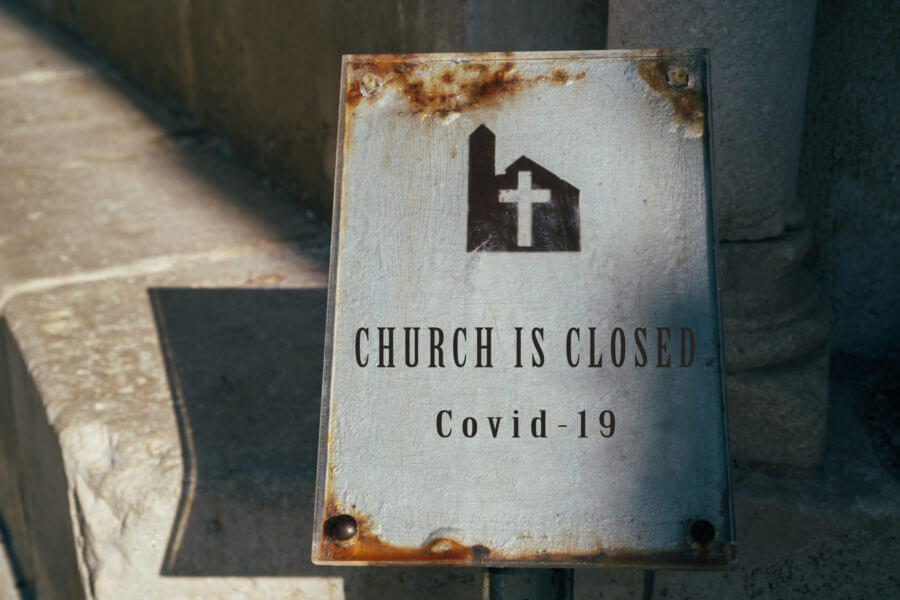And Saul also approved of their killing him [Stephen]. That day a severe persecution began against the church in Jerusalem, and all except the apostles were scattered throughout the countryside of Judea and Samaria. Devout men buried Stephen and made loud lamentation over him. But Saul was ravaging the church by entering house after house; dragging off both men and women, he committed them to prison. Now those who were scattered went from place to place, proclaiming the word.
Acts 8:1-4
As churches and individuals grapple with COVID-19 and the lockdown of everyday life and the economy, I have been thinking about many instances of irony in the Bible. Wikipedia defines irony as an “event in which what appears on the surface to be the case, differs radically from what is actually the case.”
Take for instance, the irony of Abraham, who while childless is promised by God to be the father of many nations. There is Joseph, sold into slavery by his own brothers, who rises to the pinnacle of power in Egypt and rescues his brothers from starvation. There is David, who as a young shepherd, defeats the giant Goliath, a professional soldier. There is Saul, the persecutor, who became Paul the apostle and discovered God’s strength perfected in his weakness, counted loss as gain, and showed the wisdom of the world to be foolish.
But Jesus is the personification of irony; He told of new life springing from a dying seed! Then see Jesus on the cross, regarded by the world as cursed by God, but becoming God’s blessing for the world. Just as people thought Jesus was defeated He became the victor, showing again how God turns the tables.
Reflecting recently on today’s scripture from Acts, I was struck by yet another example of irony in the Bible. This passage is pivotal for early Christianity and marks a turning point in the spread of the Gospel. Persecution intended to silence the Word turns out to spread the Word. Like water on an oil fire, the persecution scattered Christians, resulting in spreading the Gospel seed.
Here we read of a hate-fueled Saul of Tarsus “ravaging the church”; Saul will become Paul of Tarsus, a prime leader in building the church. Steps that were taken to eliminate the church result in stimulating the growth and spread of the church. How divinely ironic!
Luke, who was Paul’s colleague in ministry, records this event about the Gospel spreading “throughout the countryside of Judea and Samaria.” Luke likely has in mind Jesus commanding His apostles to be witnesses to Him “in Jerusalem, in all Judea, and Samaria, and to the ends of the earth” (Acts 1:8). But instead of obediently spreading the Gospel to all Judea and Samaria, the apostles are holed up in Jerusalem. Remarkably it is ordinary Christians fleeing for their lives from Jerusalem who take the Gospel with them to the last place any Jew ever wanted to go, Samaria. Gladly, Luke later records “those who were scattered because of the persecution that took place over Stephen traveled as far as Phoenicia, Cyprus, and Antioch…” (Acts 11:19). It is notable that it is in Antioch that the man who was once Saul of Tarsus begins ministry as a reborn Paul alongside Barnabas (Acts 11:25-26); Antioch becomes the place where disciples are first called “Christians” (Acts 11:26). The irony is not lost on Luke as he recounts this amazing story!
Read between the lines and you see that Luke wants readers to understand God’s overriding purpose in Christians being “scattered.” The Greek word translated “scattered” is diaspeiro, coming from the verb speiro, referring to the sowing of seed (Matthew 6:26; 13:3-4, 18, 25:24, 26, Luke 8:5; 12:24; et al). The scattering of Christians through persecution became the far scattering of the Gospel seed. Persecution was hard for those early Christians, but ironically it resulted in scattering the Gospel throughout the world. This scattering of Christians and the Gospel seed led the early North African theologian Tertullian to conclude: “The blood of martyrs is the seed of the church.” (Apologeticus)
Today Jesus’ promise still stands for a church confronting COVID-19 and a new normal: “I will build my church, and the gates of Hades will not prevail against it.” Christ’s church, aboveground or underground, is still ‘open for business’! The gates of Hades will fall before it! Let us joyfully join with a reborn Saul of Tarsus, aka the Apostle Paul, in celebrating: “But thanks be to God, who in Christ always leads us in triumphal procession, and through us spreads the fragrance that comes from knowing him” (2 Corinthians 2:14). What divine irony!
A Fellow Traveler,
Tim



